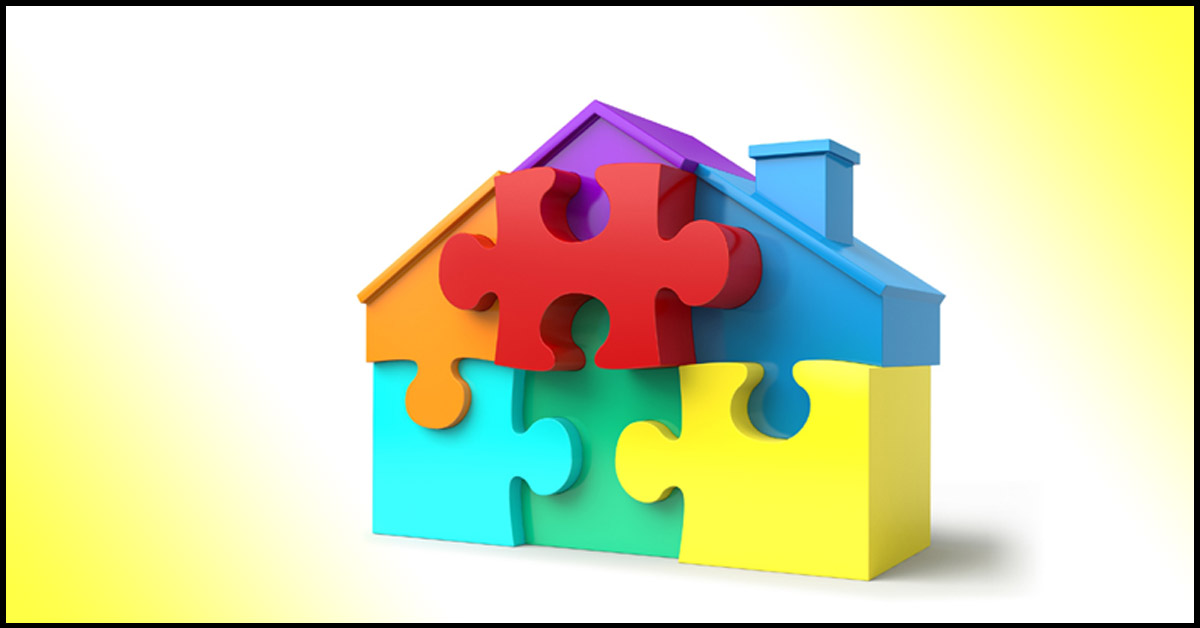

Mike Ballew – Engineer, author, and Eggstack founder.
Eggstack is an independent financial technology company located in Jacksonville, Florida. Our mission is to help you overcome uncertainty about retirement planning and inspire confidence in your financial future.

Living through the Coronavirus serves as a reminder of just how unpredictable life can be. One minute you’re driving to work every day and going out to eat anytime you want, and the next you’re holed up like some kind of hermit, working from home and suffering through those god-awful zoom meetings. We like to think life will go on just as it has before, but the truth is we have no idea what’s around the next bend.
Before the financial crisis of 2008, had you ever heard of a credit default swap? Of course not, who had? Yet this heretofore unknown phenomenon led to an economic collapse second only to the Great Depression. This is where real estate investing comes in. Real estate is tangible, something you can see and touch and feel. Real is even part of its name!
Investing in real estate is true diversification. People talk about diversifying their portfolios by shifting some of their investments from consumer goods to utilities or whatever, but what do they all have in common? They’re stocks! Putting all of your eggs into one basket is not a good idea. Real estate investing provides an alternative that allows you to truly diversify. The property will always be there; it can't disappear into thin air like stocks can.
The biggest fear among retirees is outliving their retirement savings. With the traditional approach to retirement, there’s a constant reminder that it could happen. Every time you withdraw money from your retirement accounts, the balance ticks down another notch.
Real estate is like a breath of fresh air – the gift that keeps on giving. Month after month, year after year, your tenants pay you rent. Owning rental property provides a steady stream of retirement income.
You don’t need an advanced degree in economics to understand inflation: it makes prices go up. It never stops, which is why owning physical assets like real estate can represent your best hope to keep up with inflation.
In addition to real estate appreciating in value, the income it produces increases as well. In ten years that $1,500 rent check you receive today will be more like $1,800.
Investing in real estate is not all sunshine and rainbows, there are some disadvantages, too. One is the fact that it ties up a significant amount of capital. Let’s look at some numbers. The average 50-year-old has $180,000 in retirement savings. You need 20 percent down to avoid paying PMI (private mortgage insurance). 20 Percent down on a $200,000 property is $40,000. Throw in some closing costs and improvements and now you’re looking at $50,000. Own two rentals and you’re up to $100,000. That’s more than half of the average 50-year-old’s retirement savings.
In addition to first costs, there are ongoing costs and hassles. Your 401(k) doesn’t call you up in the middle of the night to tell you the toilet is clogged or it needs a new roof. Nor does it sit vacant between tenants and make you pay the mortgage with no rent coming in. The fact is, in order to play the investment property game, you need lots of upfront money and at least another $20,000 or so sitting in the bank for unexpected expenses.
Do you dream of moving to an idyllic location when you retire or roaming the country in an RV? Do you aspire to owning two homes, one up north to spend summers and another down south for winters? Do you have grown children you plan to chase around the country in order to remain close to your grandchildren? If so, owning investment property might not be for you.
Owning rental property ties you down. While it’s true that there is a way around it, the solution is something less than ideal. You can enlist the services of a property management company to oversee tenant acquisition and maintenance, which will set you back about 10 percent of your monthly rent receipts.
There’s an old adage that says if you want something done right, you have to do it yourself. Can you trust someone else to sift through all the riff-raff who would destroy your property and skip out on the rent? Can you trust someone to get the best prices on repairs and not funnel everything to their brother-in-law?
Let’s face it, being a landlord is risky. Handing over the keys to your property to a complete stranger is rolling the dice. That one-month rent you took as a security deposit won’t go very far if they pour cement down the toilets (it happens). Or more likely, ruin the flooring with pets and parties. You are compounding that risk when you turn everything over to a property management firm.
Owning and operating rental properties is not a passive occupation. It requires time and effort. When you’re in the market to buy a new property, you have to shop around to get the best deal. It takes time to find quality tenants and oversee maintenance and repairs. If you have a fulltime job and a home of your own to maintain and a family who needs you, you need to consider whether you have time to take on something new. What about after you are retired? Sure, you will have more time, but what if your health is failing or you have a family member who needs you to care for them?
Investing in real estate is not for everyone. It can diversify your assets, or it can consume them and have the exact opposite effect. It can be the gift that keeps on giving, or it can be a soul-sucking nightmare that makes you wish you'd never heard of it.
Before taking the plunge, it would be wise to tap into other people’s experiences. Life is too short to learn everything the hard way. Perhaps you have a family member or friend who has been a landlord. Ask them to share their thoughts. Given the chance, would they do it again? Why or why not? Buy some books or go online and seek guidance.
Becoming a real estate investor is a big decision with potentially life-altering consequences. It’s not as easy as saying if you don’t like it you can sell it. That’s like flushing $10,000 down the drain. It costs money to get into a property, and even more to get out. In addition to large outlays of cash for closing costs and realtor commissions, there are lesser costs that really add up. Things like mortgage payments when the property sits vacant, the cost of improvements, utility connections and the like.
Can you afford to throw money away? The $180,000 mentioned earlier is nowhere near enough to retire on. Ballpark numbers, you need ten times your annual salary.
If you are considering becoming a real estate investor, sit down with your significant other and thoroughly discuss the matter. Carefully consider the pros and cons of real estate investing before making any decisions.
Photo credit: Pixabay Eggstack News will never post an article influenced by an outside company or advertiser. Our mission is to help you overcome uncertainty about retirement planning and inspire confidence in your financial future.